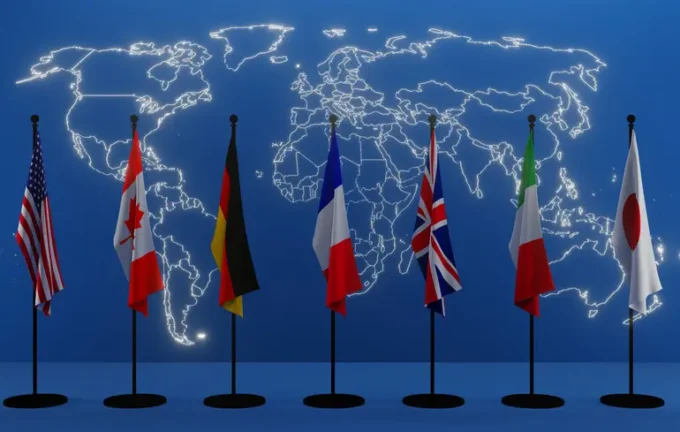G7 Countries Express Concern Over Developments Around NABU and Challenges for Ukraine’s Anti-Corruption Efforts

The diplomatic representatives of the G7 nations have voiced their deep concern regarding recent developments concerning the National Anti-Corruption Bureau of Ukraine (NABU).
In an official statement, they emphasized their worries about the investigative actions carried out by the Security Service of Ukraine (SBU), which included searches across various regions of the country targeting NABU staff.
Particular attention was drawn to the exposure of a suspected Russian agent among the bureau's personnel.
The G7 diplomats highlighted that these events have caused significant alarm among international partners, promising to monitor the situation closely and to discuss it further with Ukrainian authorities.
They underscored the importance of maintaining transparency, independence of institutions, and good governance, stressing that Ukraine's partnerships with G7 countries are crucial in the joint fight against corruption.
The situation also includes reports of alleged Russian interference aimed at destabilizing Ukraine’s anti-corruption initiatives.
On July 21, early in the morning, Ukrainian law enforcement agencies launched a series of searches involving NABU employees nationwide, including in Dnipro, in connection with separate investigations.
Resulting actions led to suspicions of treason for individuals, including the head of NABU’s Dnipro office, accused of collaborating with Russia.
However, all these searches were conducted without court approval, violating Ukraine’s Constitution, specifically Article 62, which presumes innocence until proven guilty in a court of law.
The Prosecutor General’s Office and SBU also publicly named suspects, which contradicts fundamental legal principles, as such actions previously required court authorization.
Additionally, it was reported that on July 21, law enforcement agencies initiated an unscheduled inspection of NABU and the Specialized Anti-Corruption Prosecutor’s Office (SAPO), gaining access to sensitive investigative materials.
This raised concerns about potential disruption of ongoing investigations and weakening of Ukraine’s anti-corruption efforts, threatening the integrity of reforms and public trust in state institutions.

